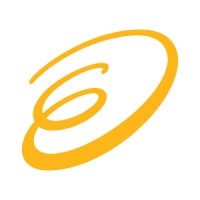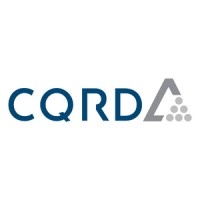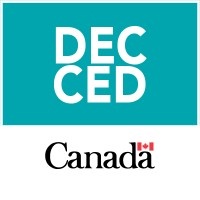
Closed
MTRIC — SI2TEC – Feasibility Studies
Last Update: December 9, 2025
QC, Canada
Supporting feasibility studies for circular metal transformation
Grant and Funding
At a glance
Funding available
Financing goals
Reduce the ecological footprint
Eligible Funding
- Maximum amount : 75,000 $
- Up to 50% of project cost
Timeline
- Receipt of requests is now closed
Eligible candidates
Eligible Industries
- Manufacturing
Location
- Quebec
Legal structures
- Non-profit
- Public or Parapublic institution
- For-profit business
- Non-financial cooperative
Annual revenue
- All revenue ranges
Organisation size
- All organization sizes
Audience
- Startups
Non-profit candidates
Sector of operation
- Research
- Environment
- Economic, Social and Community Development
- Business Associations
Target groups
- Rural / Remote communities
- Business owners / entrepreneurs
- Nonprofits / charities
Revenue structures
- All structures
Scope
- Local
- Municipal
- Regional
- Provincial
Overview
The MTRIC — SI2TEC Feasibility Study grant offers up to $75,000 to support feasibility studies and planning of innovative circular economy projects within the metal transformation sector. Eligible activities include the development of new processes, reduction of ecological footprint, and fostering industrial synergies.
Activities funded
- Feasibility studies to support the development of the circular economy in the metallic transformation sector.
- Studies on technological, commercial, or competitive positioning related to the circular economy.
- Analyses addressing common issues, challenges, or needs within an industrial sector or associated sectors.
- Techno-economic feasibility studies or studies identifying technologies to foster industrial synergies.
- Development of deployment strategies or acquisition of strategic data associated with the study.
Examples of admissible projects:
$ 60,000
Launching an educational program for technological literacy
$ 68,000
Innovating biodegradable packaging solutions for manufacturers
$ 45,000
Establishing a local food co-op for sustainable agriculture
$ 41,000
Establishing an artisan guild for indigenous crafts
$ 75,000
Creating an app to optimize public transport efficiency
$ 60,000
Developing solar panel energy solutions for urban buildings
Eligibility
- Applicants must be regular members of the CRITM during the project duration.
- Eligible entities include private for-profit enterprises with an establishment in Quebec.
- Cooperatives with activities similar to an enterprise are eligible.
- Mixed enterprises in the municipal sector are eligible.
- Non-profit organizations (excluding academic types) in Quebec conducting production, R&D, or commercialization activities are eligible, including sector associations, private enterprise associations, and cooperative groups.
- Applicants may partner with public research institutes in Quebec, specialized service firms, municipalities, cities, municipalities regional county (MRC), and non-profit organizations under the Cities and Towns Act.
- Applicants must provide a certificate of francization or proof of undertaking with the Office québécois de la langue française (OQLF) and maintain a French-language website (except for international partners).
- The study must be conducted in Quebec, supporting the development of various enterprises in the metal transformation or critical and strategic minerals sector in Quebec.
- Projects must foster alliances, partnerships, and networks across an industry sector, activity sector, territory, or value chain.
- Projects must promote the development of the circular economy.
- Applications must not include entities such as state-owned enterprises, those registered in the Register of companies not eligible for public contracts (RENA), and tertiary sector companies focused on service provision rather than goods manufacturing.
Who is eligible?
- Private for-profit companies with a location in Quebec, including cooperatives with similar activities to a business.
- Mixed companies in the municipal sector.
- Non-profit organizations (NPO) with a location in Quebec specializing in production, research and development, or commercialization activities, including cooperatives with similar activities such as sectoral associations, private business associations, and cooperative groupings.
Who is not eligible
- State-owned enterprises or companies directly or indirectly controlled by a provincial or federal government.
- Companies owned majority by a state-owned enterprise.
- Community Futures Development Corporations (Sociétés d'aide au développement des collectivités - SADC).
- Companies listed on the Register of enterprises ineligible for public contracts (RENA).
- Enterprises in the tertiary sector whose primary activity is the provision of services rather than goods manufacturing or trading.
- Applicants who have failed to fulfill obligations related to previous financial assistance from the Ministry of Economy and Innovation (MEIE) within two years prior to the application.
- Companies under the protection of the Companies' Creditors Arrangement Act or the Bankruptcy and Insolvency Act.
Eligible expenses
- Professional fees.
- Salaries and benefits of employees dedicated to the project, corresponding to the actual time spent on the project.
- Direct costs associated with the use of materials and equipment, calculated based on the project duration.
- Equipment rental fees relevant to the project, calculated according to the project's duration.
- Costs related to the use of software tools, calculated based on project use.
- Travel and accommodation expenses related to project execution.
- Administrative tracking costs, capped at 5% of the project's eligible expenses.
Eligible geographic areas
- Companies with an establishment in Quebec.
Selection criteria
- The pertinence of the project regarding circular economy (statement of the issue and implementation of solutions) and innovation (eliminatory criteria).
- Expected environmental gains in Quebec and, if possible, with an impact outside Quebec, compared to the current situation across the entire product or service life cycle.
- The level of contribution of the project to strengthening a circular economy.
- The quality of the work plan and the expected deliverables.
- The quality of the partnership and collaboration across an industry, a sector of activity, a territory, or a value chain.
How to apply
1
Reading the submission guide
Download and carefully read the funding application submission guide available on the CRITM website.
2
Preparation of the request
- Draft a feasibility study project in metal transformation including the objectives, methodology, and expected results.
- Verify that the project complies with the research axes and eligibility criteria of the SI2TEC program.
- Gather the necessary supporting documents such as the budget, timelines, and letters of recommendation.
3
Eligibility Check
- Ensure that the organization is a regular member of CRITM.
- Provide a copy of the francization certificate or proof of the steps taken with the OQLF, if applicable.
4
Submission of the request
- Access the application form on the CRITM website.
- Fill out the online form with the required information.
- Upload the supporting documents and the study project.
- Check the accuracy of the information and submit the application online before April 3, 2025.
5
Submission Confirmation
- Receive a confirmation email after submitting the application.
- Print or save the confirmation for future reference.
Additional information
- Applications can be submitted at any time, but must be received by the final deadline of April 3, 2025.
- CRITM has a specific budget allocated for the SI2TEC program, which limits the number of projects that can be funded.
- An intellectual property agreement must be signed between all partners within three months of official confirmation, which is a prerequisite for any financial disbursement by CRITM.
- The program offers a non-repayable grant covering 50% of eligible project expenses, with a maximum limit of $75,000 per study.
- The CRITM mandates a minimum private contribution of 30% of the total project costs and limits the cumulative public funding to a maximum of 70%.
- The directives and policies of CRITM may vary, potentially superseding some of the norms stated in the program guidelines.
Contacts
jfstcyr@critm.ca
418446-7187
QC, Canada
Apply to this program
Frequently Asked Questions about the MTRIC — SI2TEC – Feasibility Studies Program
Here are answers to the most common questions about the MTRIC — SI2TEC – Feasibility Studies. This section explains what the program is, how much funding is available, eligibility requirements, application deadlines, and other important details to help you determine if this grant is right for your business.
What is the MTRIC — SI2TEC – Feasibility Studies?
How much funding can be received?
Who is eligible for the MTRIC — SI2TEC – Feasibility Studies program?
What expenses are eligible under MTRIC — SI2TEC – Feasibility Studies?
Who can I contact for more information about the MTRIC — SI2TEC – Feasibility Studies?
Where is the MTRIC — SI2TEC – Feasibility Studies available?
Is the MTRIC — SI2TEC – Feasibility Studies a grant, loan, or tax credit?
Apply to this program
More programs like this

Grant and FundingClosed
GHG Challenge Program - Industry
Environnement Québec (MELCC)Supports major industrial projects reducing greenhouse gas emissions

Grant and FundingOpen
Economic development program to help revitalize territories (DEPART)
Investissement Québec (IQ)DÉPART supports economic diversification and growth in targeted areas

Grant and FundingOpen
Enbridge Gas Quebec — Custom-made project
Enbridge Gas QuebecSupports energy-saving projects using natural gas in buildings

Tax CreditsOpen
Additional deduction for transportation costs for manufacturing SMEs
Revenu QuébecTax deduction for manufacturing SMEs' transportation costs in remote areas

Grant and FundingClosed
MTRIC — PARTENAR-IA — Industry
Metal Transformation Research and Innovation Consortium (MTRIC)Funding for Quebec metal transformation innovative collaborations in AI

Grant and FundingOpening Soon
CQRDA — INNOV-R SME
Centre québécois de recherche et de développement de l’aluminium (CQRDA)Innovative projects to reduce greenhouse gas emissions in Quebec

Grant and FundingClosed
Regional Tariff Response Initiative (RTRI) — Quebec
Government of CanadaSupport for Quebec manufacturing SMEs impacted by international tariffs

Grant and FundingOpen
Regions and Rurality Fund (RRF) - Component 1 - Support for regional outreach
Gouvernement du QuébecSupports regional projects impacting Quebec's territories and communities

Grant and FundingExpert AdviceOpen
Grant for a circular economy assessment
City of Montreal (MTL)Supports businesses in Montreal adopting circular economy practices

Grant and FundingOpen
Productivity-Skills
Gouvernement du QuébecFunds workforce training projects to boost SME productivity and competitiveness
Sign up to our platform to access the MTRIC — SI2TEC – Feasibility Studies information sheet for free
Get access to 4,000+ programs, practical guides, personalized alerts, and an AI assistant to support your grant applications.